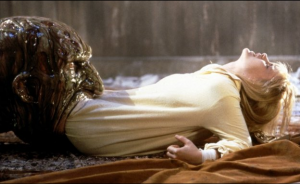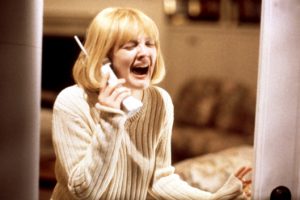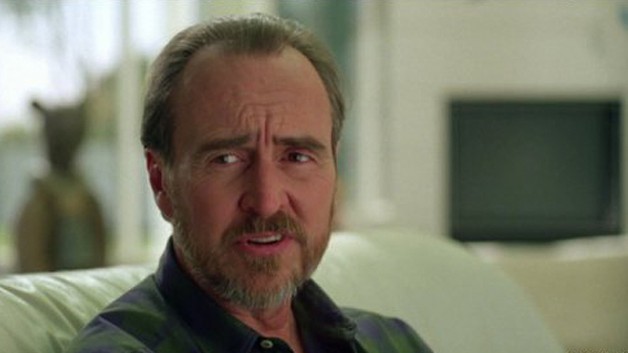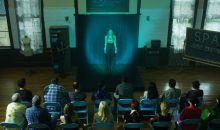Remembering Wes Craven
Horror movies were my jam as a teenager. I have fond memories of going down to Hastings Books + Music and checking out the 49-cent VCR rentals. Horror movies were gory, they were scary, and they had more T&A than any other movie genre I could find, all of which were important things to Teenage Me. The cheap movie rentals meant I could go through movie series as fast as my Mom could drive me to the video store. I went through all the big series: Friday the 13th, Halloween, and of course, A Nightmare on Elm Street. It was through those trips to the video store that I was first introduced to Wes Craven, who sadly passed away last week.
 I haven’t seen everything Craven ever directed, but I’ve hit the high points. I got into the Elm Street series at A Nightmare on Elm Street 3: Dream Warriors. Header Lagenkamp returned as Nancy, Patricia Arquette and Laurence Fishburne were just starting out in their careers and Freddy Kruger had yet to devolve into quippy self-parody. I’ve since watched all seven Elm Street movies and Part 3 remains my favorite for this reason. After Part 3, the character of Freddy became less menacing; the puns and the kills took precedence.
I haven’t seen everything Craven ever directed, but I’ve hit the high points. I got into the Elm Street series at A Nightmare on Elm Street 3: Dream Warriors. Header Lagenkamp returned as Nancy, Patricia Arquette and Laurence Fishburne were just starting out in their careers and Freddy Kruger had yet to devolve into quippy self-parody. I’ve since watched all seven Elm Street movies and Part 3 remains my favorite for this reason. After Part 3, the character of Freddy became less menacing; the puns and the kills took precedence.
Re-watching the original Elm Street movie over the weekend in preparation for this article, I was struck by how high-concept the first movie was. Wes Craven did for sleeping what Jaws did for swimming and Psycho for showers. Don’t go to sleep, or a murderer will kill you, making you dead for real. How do you not sleep? And more to the point, how do you kill someone who is, essentially, a dream?
 This was Craven’s brilliant contribution to the horror genre: high-concept scares the audience had never even considered. 1994’s Scream is another fantastic example of this. Scream featured jaded 90s kids, weaned on horror movies and making fun of all the tropes, yet as they were picked off one by one they would unwillingly fall into those same tropes. And let’s face it: without Scream, meta-horror like Cabin in the Woods or Tucker and Dale vs. Evil doesn’t exist. Scream also reignited Craven’s writing/directing career that had seemingly run its course as the Elm Street movies became less serious (Freddy’s Dead’s Death by Power Glove, anyone?). Craven’s career spanned the decades, from his gritty low-budget horror of the 70s, to the iconic monster of the 80s and the meta-horror of the 90s and 00s. Craven never stopped trying to scare us.
This was Craven’s brilliant contribution to the horror genre: high-concept scares the audience had never even considered. 1994’s Scream is another fantastic example of this. Scream featured jaded 90s kids, weaned on horror movies and making fun of all the tropes, yet as they were picked off one by one they would unwillingly fall into those same tropes. And let’s face it: without Scream, meta-horror like Cabin in the Woods or Tucker and Dale vs. Evil doesn’t exist. Scream also reignited Craven’s writing/directing career that had seemingly run its course as the Elm Street movies became less serious (Freddy’s Dead’s Death by Power Glove, anyone?). Craven’s career spanned the decades, from his gritty low-budget horror of the 70s, to the iconic monster of the 80s and the meta-horror of the 90s and 00s. Craven never stopped trying to scare us.
Adult Me hasn’t gotten the chance to watch as many horror movies as I would like. There are gaps in my knowledge of the Wes Craven oeuvre: I haven’t seen the original The Hills Have Eyes, nor the Christina Ricci werewolf vehicle Cursed. But I’ll miss Craven nonetheless. He was always looking for some new angle to scare viewers, and in the process tapped into our deepest, darkest fears. He will be missed.
Related reading: IMDB page






